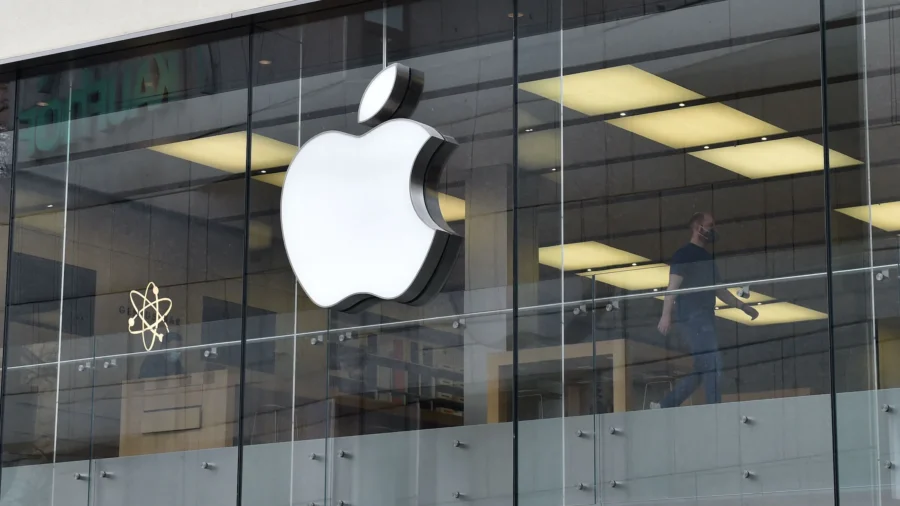Apple is making big changes in its proprietary ecosystem in Europe, following pressure from the European Union.
The tech giant is making two major changes: allowing the installation of third-party app stores on iPhones and iPads, and cutting its app store fees almost in half.
These changes are some of the biggest in its proprietary app store’s 15 years of history.
Apple also said it would offer to slash the fees it collects from in-app transactions involving digital goods and services, reducing them from 30 percent to 17 percent and, for developers that are eligible for certain discount programs through Apple, from 15 percent to 10 percent.
The changes are in response to European Union legislation taking effect in March, after vocal complaints from developers accusing the iPhone maker of anti-competitive or monopolistic behavior.
However, according to Apple, 88 percent of developers pay nothing, while about 3 percent of developers in the EU pay Apple’s standard 30 percent commission, and 9 percent pay the discounted rate.
European Union residents will gain access to the expanded features as part of Apple’s next update to its iOS operating system, version 17.4, in March, the company said, and app makers are already able to test out the changes.
For consumers, the shift may mean more choices in how they acquire and install apps. And for developers, other changes to Apple’s terms may give them more flexibility in how they market themselves to users.
Under the changes, Apple said it will allow users to download third-party app stores onto their devices from websites outside of Apple’s own ecosystem. The app stores, Apple said, will exist as standalone apps on an iOS device with the authority to install other apps offered by those third-party marketplaces.
App developers will gain the ability to offer alternative payment methods that do not rely on Apple’s own systems, the company said, and Apple will not charge a commission for doing so. Apple will also not collect any fees from apps that are distributed through third-party app stores, it added.
In exchange, developers who opt to take advantage of the new capabilities and fee structure will be charged a new fee of 0.50 euros ($0.54) for every installation of an app after the first 1 million installs in a year. Less than 1 percent of EU developers will likely be charged the installation-based fee, Apple said. Developers who wish to continue using Apple’s proprietary systems can choose to remain under the company’s existing terms and fee structure, the company said.
The new EU law that pushed Apple to comply, known as the Digital Markets Act, requires companies with more than 45 million monthly active users and a 75 billion-euro ($82 billion) market capitalization to, among other things, make their apps compatible with those of rivals and let users decide which apps to pre-install on their devices.
Last week, to comply with a court order in the United States, Apple announced support for alternative payment methods. But unlike in Europe, Apple said it would continue to charge a commission of up to 27 percent.
Apple critics including the Coalition for App Fairness, a group that includes “Fortnite”-maker Epic Games, Spotify, Tile, and others, criticized Apple’s announcement as a half-measure.
Apple representatives declined to say on Thursday whether the changes they are making in response to EU regulation may be introduced elsewhere around the world.
They also argued that in order to comply with the EU law, Apple’s updates are a fundamental change to its app ecosystem and in some cases may expose users to greater security risks. The company added that it will still perform basic automated and human security reviews of all apps and that third-party app store owners will need to meet certain security criteria.
But, the company said, apps distributed through third-party app stores will not be checked against the content or quality standards Apple uses for its own app store reviews.
Meanwhile, updates to how Apple handles browsers will present EU users with a new choice screen the first time they open Safari after downloading iOS 17.4, Apple said. The choice screen will offer a menu of alternative browsers, such as Chrome or Firefox, and provide users the ability to select a different default browser than Safari. That change aims to address longstanding critiques about tech giants’ potential to use default settings to steer users toward their own software.
In addition to being able to set new defaults for browsers, Apple said, users in the EU will be able to set a third-party app marketplace as a device’s default app store, though it will initially be set to Apple’s app store.
CNN Wire contributed to this report.


